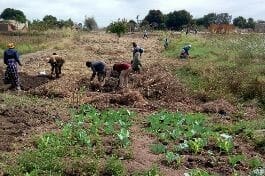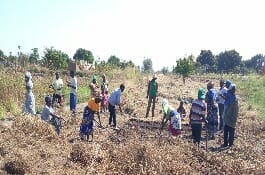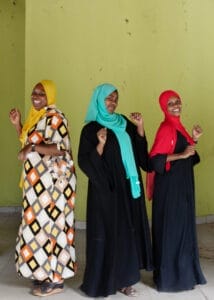
The context Kenya Despite the sustained economic growth in the last few years, Kenya is still faced with acute socio-economic…
Discover moreWeWorld has been working in Mozambique since 2000, supporting communities affected by conflict, climate change, and poverty. We work alongside women, children, and young people to improve access to education, protect rights, strengthen livelihoods, and build resilience to emergencies and climate shocks.
Our programmes combine humanitarian assistance with long-term development, focusing on education, child protection, gender equality, livelihoods, climate resilience, and peacebuilding. WeWorld works closely with local organisations, communities, and public institutions to ensure that solutions are sustainable and locally led.
According to the Word Bank date of 2023, Mozambique is the 35th most vulnerable country to climate change and the 24th least prepared for it. In addition, armed conflict in the north of the country, rising prices of essential goods and the effects of the Covid 19 pandemic have induced an economic recession. Women, girls and children suffer most from the current context, as they are the first to be discriminated and excluded from social, political and economic life.
These problems are most prominent in Cabo Delgado, the northern region of Mozambique, which not only has the highest poverty rates nationwide, but has also for years faced violence and conflict that has led to serious human rights violations, including forced recruitment of youth and women, abductions and sexual violence, and a general escalation of social disintegration and fragmentation. This humanitarian crisis has forced large numbers of Cabo Delgado families to flee to the neighbouring provinces of Niassa and Nampula, becoming internally displaced persons. In the north, almost two million people face extreme humanitarian needs and require vital assistance to survive.
WeWorld has operational offices in Maputo, Pemba (Cabo Delgado Province), Mocímboa da Praia and Tete (Tete Province). All interventions are designed and implemented in close contact with the government, local authorities and civil society organisations. The protagonists of our projects in Mozambique are women, young people, children and girls.
In the field of education and professional development, we work with the aim of ensuring access to quality education for children in the most vulnerable circumstances. Activities include psychosocial support, education, peace and the use of art and sports methodologies.
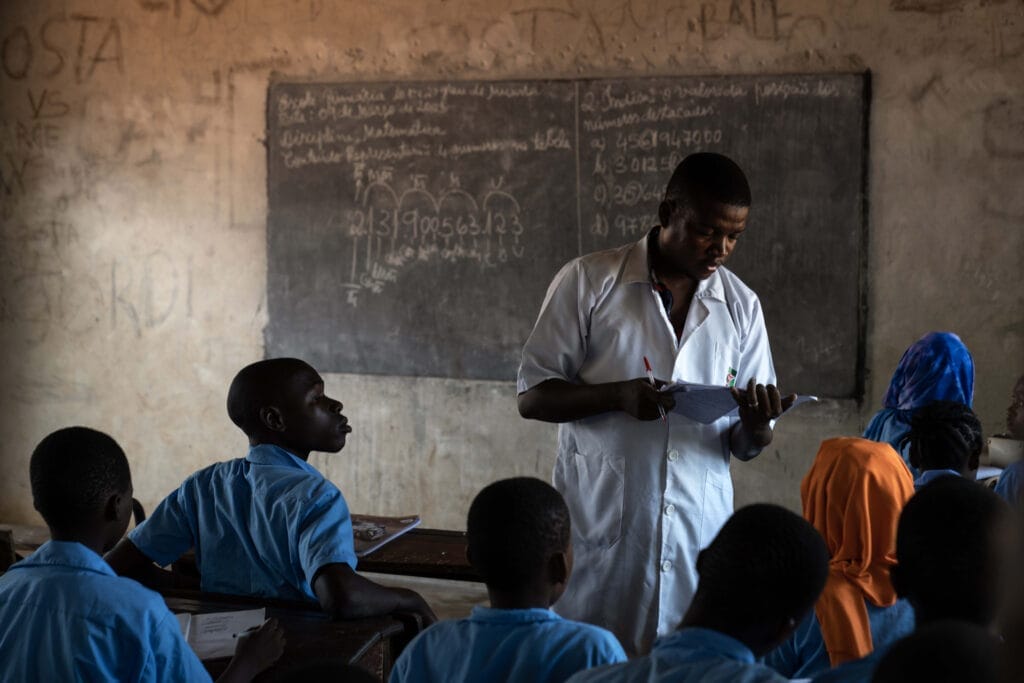
Regarding disaster risk management, we work at the national and provincial level, and since 2022 the focus has been on improving disaster preparedness, prevention and response at the level of communities, authorities and schools. Furthermore, as Mozambique is considered among the most vulnerable countries to the effects of climate change, we are currently engaged in the Maputo area in the preservation and enhancement of mangroves in the coastal zone, the revitalisation of urban agriculture and the protection of biodiversity and conservation of natural resources. In addition, we are supporting civil society, in particular young people and authorities at the national level, in order to increase population and decision-makers’ environmental awareness through dialogue, awareness-raising and lobbying on the effects of climate change. Furthermore, in relation to food security, we support the agricultural sector to increase the resilience of households in relation to climate change.
Following the start of the armed conflict in the province of Cabo Delgado in 2017, and the resulting sense of insecurity and fear in the affected populations, we introduced various activities focused on social cohesion and peacebuilding, through strengthening the role of youth and peace committees as promoters of social cohesion in local communities.
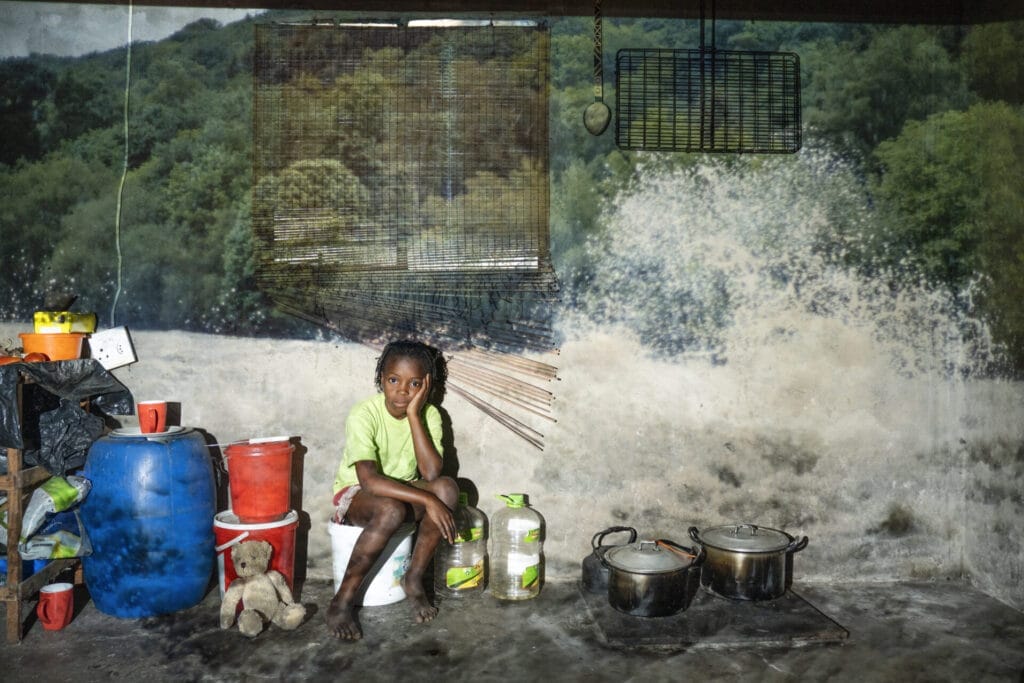
In 2019, thanks to the coordination with specific local associations, we immediately took action to deal with the two emergencies caused by cyclone Idai and Kenneth, through direct help during the emergency of the basic needs for all: clean water, health, assistance and sanitation services. In the Province of Manica, one of the most affected by cyclone Idai, our local staff installed emergency lavatories and distributed filters and buckets for the collection and purification of water, reaching over 4,000 families. After the emergency, we activated programmes to restore economic resources for communities to act autonomously with the distribution of seeds and agricultural kits.
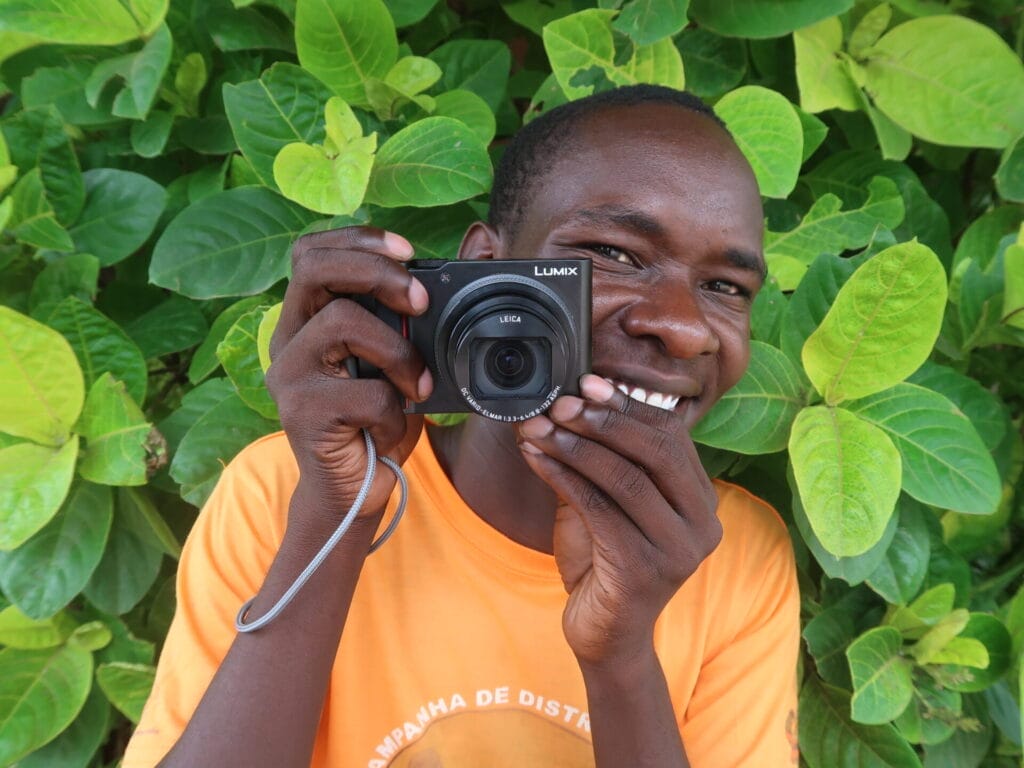
The context Kenya Despite the sustained economic growth in the last few years, Kenya is still faced with acute socio-economic…
Discover moreThe overall objective of the project is to improve Mozambique’s capacity to promote the conservation of biodiversity and the sustainable…
Discover moreLeprosys is an endemic disease in the poorest countries in the world and it can be eradicated through a combined…
Discover moreSince its beginning in 2013, as part of the multi-country programme EDUCA, Oficina de Arte has steadily grown. The project…
Discover moreGiven the absence of a strategic sustainable planning from the Government in Mozambique, poverty rate is growing and is fostering…
Discover moreThe climate events caused by El Niño have provoked the worst drought in the Southern Africa area in the last…
Discover moreThe present action is a continuance of the EDUCA programme, financed by the European Union and implemented by GVC. The…
Discover moreStarting from 2009 the Province of Cabo Delgado has faced relevant economic changes and growth opportunities thanks to recent discoveries…
Discover more68% of the Manica Province population (1.943.524 citizens) lives in rural areas, as emerges from a feasibility study carried out…
Discover moreThe project aims at connecting the experiences of the NGOs involved in the two countries, easing the exchange of know-how…
Discover moreTourism is currently a growing sector that offers one of the main opportunities for income and employment in the medium…
Discover moreReducing poverty by increasing the life standards of the most vulnerable rural populations in Maputo, Gaza and Cabo Delgado provinces.…
Discover more
